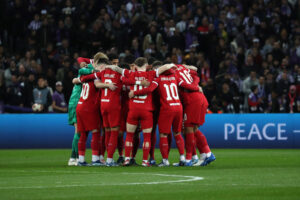In 2018, the Men’s England team reached the semi-final of the World Cup in Russia. It was applauded as a fantastic achievement, and rightfully so. Gareth Southgate’s men looked more capable than ever of conquering the often unreachable feat of World Cup glory.
The players were seen as heroes upon their return and would have received the rewarded pay of heroes.
Just a year later, however, and the Women’s team reached the World Cup semi-final, were rightfully lauded as heroes but failed to receive the same reward as the men’s team despite achieving the same thing.
Both teams were on the end of the same rightful praise. Yet, one set of players, again despite reaching the same round, were paid more than the other.
The decision certainly seems a strange one when looking back on it, especially now that the FA have announced equal pay for both sets of players when on international duty.
It has been confirmed that, since January, both the Men’s team and Women’s team have received around £1000 per game, and will also earn the same bonuses.
International Equal Pay a Big Step for Women’s Game
What Next?
The decision of equal pay may be a big step for the Women’s game, but even bigger steps may be needed for the Women’s Super League. While equal pay will not be an option at this moment in time, the more star players that join the WSL, the more viewership and, therefore, the more money will be generated.
The summer of transfers has proven the attraction of playing in the WSL. The likes of Pernille Harder, for a record fee of £300,000, has signed for defending champions, Chelsea.
The Dane scored 105 goals in 114 games for Wolfsburg and is recognised as one of the best players around. As players of Harder’s calibre arrive, the WSL will undoubtedly grow, but only if funded correctly.
Closing the Gap on the Men’s Game
Closing the gap on the Men’s game could take years yet. The Premier League is loaded with billionaires, and, alongside that, the advertising and Television viewership makes it a financial superpower.
As one player leaves a club in the Premier League for £80 million, a player arrives for a record fee of £300,000 in the WSL. The financial gap is astronomical, and a big reason why the Women’s game is often left behind.
One example from last season is Liverpool. While their Men’s team stormed to their first title in 30 years, the Women’s team struggled with an often waterlogged pitch at Prenton Park and, in the end, suffered relegation.
Each club must fund both teams efficiently instead of helping one to glory while the other fails without even a glimpse of the same help.
Equal pay on international duty is a fantastic first step, but clubs need to ensure stability for both the Men’s and Women’s game for both sets of players to prosper on and off the pitch.
Main Photo
Embed from Getty Images






